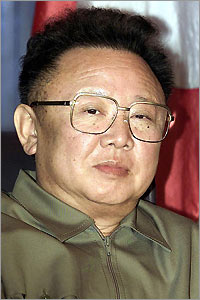Once again, the Korean Peninsula is witnessing increased tensions, and once again North Korea has initiated the crisis. Yet Pyongyang's latest acts of hostility are little more than hollow bluster that should not distract from the ongoing international effort to dismantle its threatening nuclear capabilities. Last week, Pyongyang unleashed a barrage of criticism of the policies of the recently inaugurated president of South Korea, Lee Myung-bak. Lee is seeking to break with the policies of his predecessors, who sought accommodation and gradual engagement with the North. An editorial in North Korea's state-run newspaper, Rodung Sinmun, called Lee an "impostor" and a "sycophant towards the U.S." The North's scathing comments came on the heels of a fresh round of short-range missile tests the previous Friday and the expulsion of 11 South Korean government workers from the inter-Korean economic zone in Kaesong. Then, on Sunday, March 30, Pyongyang warned South Korea that it would be "reduce[d] . . . to ashes" if Seoul attempted a preemptive strike on the North's nuclear facilities. Finally, on April 4, accusing South Korean naval forces of venturing into North Korean maritime territory, the Korean Central News Agency carried a statement by the Navy Command of the Korean People's Army warning that North Korea would take "unpredictable countermeasures" if the alleged incursions continued.
Washington, Seoul Shouldn’t Overreact to North Korean Bluster

